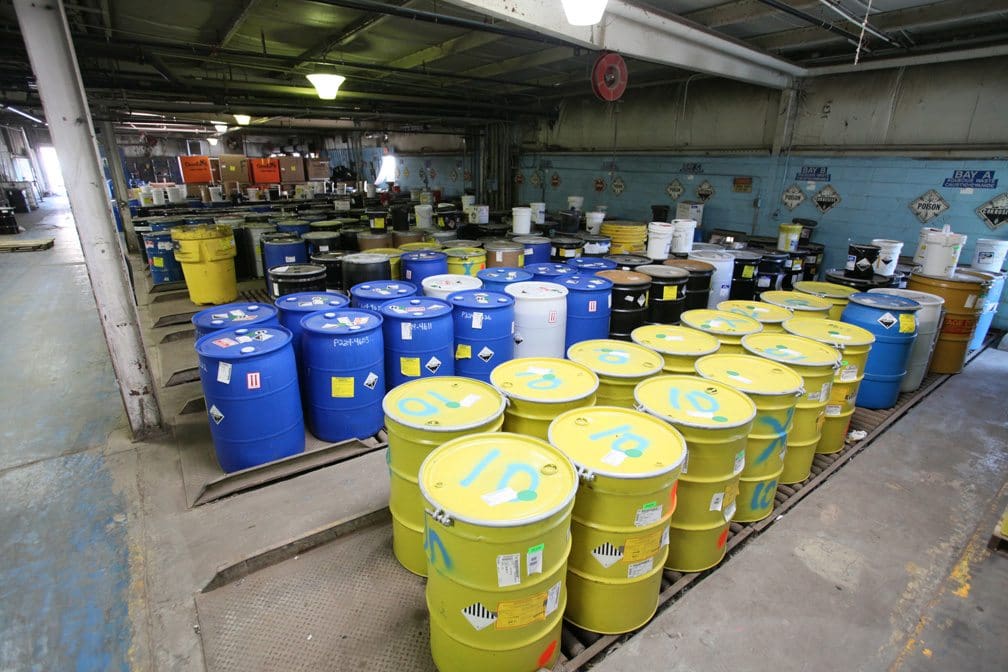Jump to:
Shipping containers have become a popular storage solution for both businesses and individuals. They are durable, spacious, and relatively inexpensive. However, not all items are suitable for storage in these steel boxes. Storing certain items in a shipping container can lead to hazards or incur high cleanup expenses. Here’s a closer look at the risks involved and how you can avoid them.

1. Hazardous Materials
Storing hazardous materials in a shipping container can pose significant risks. Chemicals, flammable liquids, and toxic substances are not only dangerous but also subject to strict regulations. Improper storage of these materials can lead to spills, fires, or even explosions.
Solution:
- Only store hazardous materials if the container is specifically designed and certified for such use.
- Follow all relevant regulations and guidelines for hazardous material storage.
2. Perishable Goods
Shipping containers are not typically climate controlled. Storing perishable goods like food, plants, or certain pharmaceuticals can lead to spoilage, mold, and can attract pests and rodents into your container.
Solution:
- Use refrigerated or climate-controlled containers for perishable items.
- Regularly check and maintain the temperature and humidity levels.
Ready to purchase a shipping container? Reach out today to get a quote from the best in the industry!
3. Sensitive Electronics
Electronics can be highly sensitive to temperature fluctuations, humidity, and dust. Storing them in a standard shipping container can result in damage or malfunction.
Solution:
- Store electronics in climate-controlled containers.
- Use protective coverings and moisture-absorbing packets to safeguard the items.
4. Valuable or Irreplaceable Items
Shipping containers can be vulnerable to theft and weather damage. Storing valuable or irreplaceable items without proper security and protection can be risky.
Solution:
- Invest in high-security locks and surveillance systems.
- Ensure the container is well-sealed and positioned in a secure, monitored location.
Ready to purchase a shipping container? Reach out today to get a quote from the best in the industry!

5. Flammable Items
Items like gasoline, propane tanks, and other flammable materials should never be stored in a shipping container unless it is specifically designed for such use. The confined space can quickly become a firetrap.
Solution:
- Store flammable materials in approved, fire-resistant containers.
- Keep these materials away from heat sources and follow all safety guidelines.
6. High Cleanup Costs
Improper storage of any of the above items can lead to significant cleanup costs. Spills, contamination, and damage can require professional remediation services, which can be expensive and time-consuming.
Solution:
- Adhere to best practices for storage and regular maintenance.
- Insure your stored items and container to cover potential cleanup costs.
Ready to purchase a shipping container? Reach out today to get a quote from the best in the industry!
Conclusion
While shipping containers offer a versatile storage solution, it’s crucial to be mindful of what you store inside them. Hazardous materials, perishable goods, sensitive electronics, valuable items, and flammable materials all require special consideration and precautions. By understanding the risks and taking appropriate measures, you can safely and effectively use shipping containers for storage without incurring high cleanup expenses or creating hazards. Consult with Container Sales Group at 888-320-5938 when purchasing a shipping container for storage or transport. Make sure to follow the information above to ensure safety, adherence to legal regulations, and practical utility.
